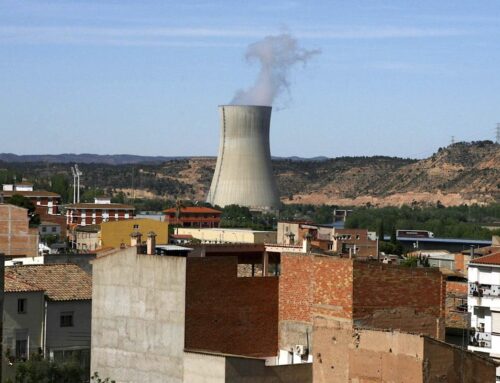When Trump took office the first time, the legal cannabis industry was flourishing. California, Maine, Massachusetts, and Nevada had all voted to legalize adult-use marijuana the day he was elected, joining Colorado, Washington, and Oregon in the so-called “Green Rush.” Trump had claimed during his campaign that he wouldn’t interfere with state-level marijuana policy — but then his drug-warrior attorney general Jeff Sessions rescinded the Cole Memo in 2018. Despite stoking the fears of cannabis advocates and industry folks, however, the policy shift didn’t impede state-level marijuana reform. Today, three-quarters of Americans live in a state where marijuana is legal for either recreational or medical use.
While Trump has signaled that he could be open to federal cannabis reform in his second crack at the presidency, Democratic lawmakers aren’t taking him at his word. A coalition led by Sens. Elizabeth Warren (D-Mass.) and Ron Wyden (D-Ore.), along with Reps. Barbara Lee (D-Calif.), Earl Blumenauer (D-Ore.), and Ilhan Omar (D-Minn.), drafted a letter in November asking Biden to finalize his plans to limit marijuana prosecutions at the federal level before he leaves the Oval Office. Trump’s threat of mass deportations could also threaten undocumented agricultural workers who travel to the United States to cultivate, harvest, and trim cannabis crops.
What will Trump’s policies ultimately look like when it comes to legal weed? It’s hard to tell what kind of alliances he’s building as he taps convicted criminals and other unqualified candidates for key positions. His first pick for attorney general, Matt Gaetz, was pro-legalization; cannabis advocates were delighted. But after Gaetz flamed out amid claims of sexual misconduct, Trump nominated Florida’s former attorney general Pam Bondi, who opposed the state’s efforts to legalize medical marijuana. Trump’s nominee to head up the Department of Health and Human Services (HHS), Robert F. Kennedy Jr., is an anti-vaxxer and conspiracy theorist who has threatened to fire Food and Drug Administration (FDA) employees for “suppression” of substances including raw milk and ivermectin — but he’s pro-cannabis and psychedelics.
Chad Chronister, a Florida county sheriff who was in favor of legalizing recreational cannabis, was Trump’s choice to head up the Drug Enforcement Administration (DEA), but the president-elect yanked the appointment after Chronister was revealed to have arrested a Florida pastor for hosting church services during the Covid-19 pandemic. And then there’s Marty Makary, a surgeon and medical commentator who has suggested that cannabis use can be linked to cardiovascular and mental health issues. Trump nominated Makary to head up the FDA in a post that would oversee federal cannabis policy.
Trying to track all Trump’s nominees and their varying stances on legalization will give you whiplash.
The unpredictability of the incoming Trump administration was a hot topic last week in Las Vegas at MJBizCon, a trade show that bills itself as the “largest B2B cannabis event in the world.” Tens of thousands of marijuana entrepreneurs and advocates gathered to wheel, deal, and discuss what the future may hold. Surprisingly, the overall mood at the event was optimistic, even as the industry braces for massive shifts, with hearings to move marijuana to Schedule III slated to begin the day after Trump’s inauguration.
Cultivator Ted Lidie made the leap from the legacy market (industry insiders no longer use the term “black market”) to the regulated space when California legalized recreational weed. His company Alien Labs is now licensed to operate in five states. Despite his general dislike of the GOP and Trump, Lidie thinks things bode well for the industry under the new administration. “I think Democrats would have done better on the social-justice side,” Lidie says. “But the Republicans are probably going to steal this issue, and do better from a business perspective than the Democrats would have done.”
Until now, federal prohibition has squelched any possibility of interstate commerce, since crossing state lines with cannabis violates federal law. While that’s been frustrating for operators with single-state licenses, it’s also protected them from being squeezed out by multi-state corporations. Lidie has mixed feelings about the market opening up nationally, but he thinks that interstate commerce could actually help small businesses survive; if consumers in Florida could order craft cannabis from a highly regarded grower in Oregon or California, Lidie says, “it would make a much better marketplace, in my opinion.”
Lidie’s cautious hope for disruption of the status quo was echoed by others at the event. Jordan Tritt, CEO and co-founder of advisory firm The Panther Group, says investors are feeling optimistic about Trump’s nomination of RFK Jr. as head of the HHS. “RFK Jr. is the biggest positive opportunity in the administration that I see playing out for the cannabis base,” Tritt says. “He’s pretty favorable on psychedelics and cannabis. I expect a move away from pharmaceuticals that will invite new strategic investors.”
During his run for the Republican presidential nomination, RFK Jr. claimed that, if elected, he would legalize cannabis and use the tax revenue to create “wellness farms” where people with addiction to “psychiatric drugs” would be “repaired.” Could he potentially merge the legal American weed industry with the global wellness market, which reportedly raked in $6 trillion worldwide in 2023? The idea seems appealing to venture capitalists.
Other industry veterans were circumspect when asked about how Trump could affect business. Crystal Millican is senior vice president of retail and marketing for Cookies, a California cannabis brand that launched in 2010 and now spans six countries. Cookies execs aren’t trying to predict what the administration will do, Millican says: “We’re cautiously optimistic about Trump’s support for safe banking for cannabis companies.” She’s reserving judgment on Pam Bondi and her anti-marijuana record. As for Trump’s other candidates, Millican says, “I don’t think the administration has signaled that cannabis reform is at the top of their list. So we will see.”
Vince Ning, founder and CEO of the cannabis wholesale platform Nabis, is waiting to see if Trump’s appointees will set a domino effect into motion by carrying out his vow to “dismantle federal bureaucracy.”
“The HHS produces all the health studies and reports from organizations like the National Institute of Health,” Ning says. “HHS is going to be one of the first places [where] the government is going to cut costs. And the Drug Enforcement Agency reports to the attorney general, so whoever gets appointed as AG will have a large influence on the DEA.”
That doesn’t mean that Ning is necessarily pessimistic about the upcoming administration. “I think it’s more status quo than anything else,” he says. “Republicans are all about small government and states’ rights. That’s the default way in which cannabis has been legalized.”
Some marijuana activists also anticipate that things could change for the better under Trump, even if it means chaos. Danny “Danko” Vinkovetsky, the former cultivation editor for High Times, points out that federal law hasn’t changed under any of the five presidential administrations since he started out as a grower in the ‘90s. He says moving marijuana to Schedule III could actually be a step in the wrong direction, if it ends up giving control of legal cannabis to the pharmaceutical industry. But he says that even if the Trump administration is disruptive, “it might move things forward in some way by breaking what exists.”
Cannabis PR, media, and drug policy expert Ricardo Baca agrees that a shakeup is desperately needed. “The federal government has always been sitting on its hands when it comes to drug policy reform,” Baca says. “We could see significant change with a loose cannon stepping into the Oval Office. I don’t support Trump. I think he’ll be bad for the country. But the snail-paced progress needs to be disrupted. I wouldn’t be surprised if he did something ‘nuts’ (in D.C. terms) like federally legalizing cannabis.”
The consensus on what federal law will look like under Trump 2.0 seems to be that there is no consensus, other than that change is imminent. Overall, the industry outlook for legal weed seems bright. Could Trump and his cabinet of diehard MAGA loyalists flip the script on over 80 years of prohibition? We’ll have to spark up, sit back, and wait to see.



